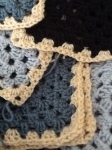 It’s all about the money.
It’s all about the money.
One of my engineering co-workers received a survey from his alma mater. They were having an unusual problem with their engineering students: either while working on internships or in the first years of employment, they were becoming disillusioned with the profession. This statement– “it’s all about the money”– along with others like “nobody believes in the product” and “I want to help people” was being fed back to the university as students left for medical school and other professions perceived as being more service-oriented.
I couldn’t have been more surprised. So while I didn’t receive the survey (not my university), I’ll answer here, to engineering students and recent grads anywhere who feel like their purpose is diminished to just making money for a large corporation.
First, it is about the money. Part of your responsibility to your employer and its owners or shareholders is to make them money, whether that’s by finding efficiencies, designing a high-return product, or solving problems. Each one of those tasks represent a puzzle, with economics as a scorecard.
But it is not ever only about the money. The real beauty in being an engineer — absolutely my favorite part — is that you have a responsibility to improve safety, protect the environment, and protect the public all while meeting financial objectives. Now, it’s a multidimensional puzzle. This is why we have professional licensure for engineers, and why we take a pledge that promises in part “to place service before profit, the honor and standing of the profession before personal advantage, and the public welfare above all other considerations”.
Any bozo can build a project; engineers optimize their solutions for all of those objectives. And that’s a beautiful thing.
photo courtesy Bart McGuire, Flickr



